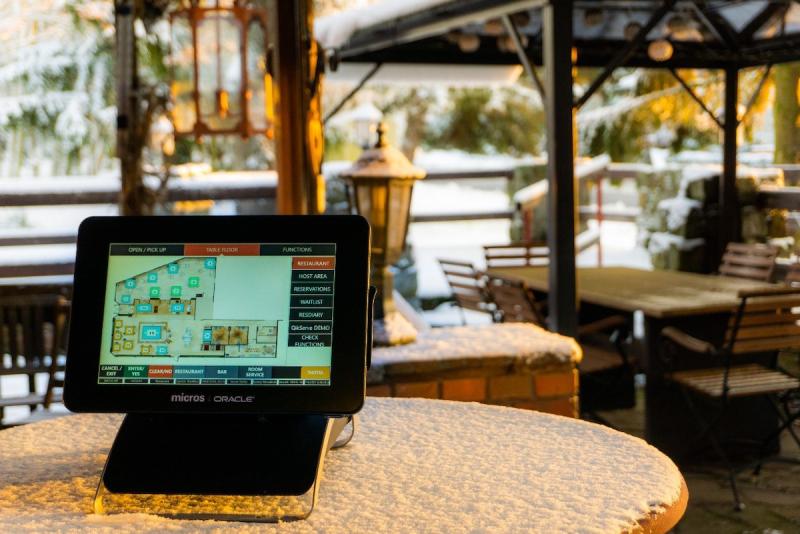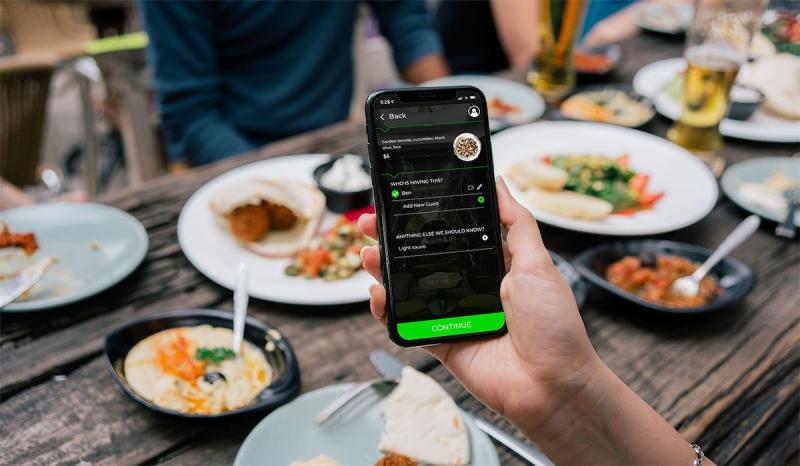The pandemic has changed many things about how hotels are operated, including increasing demand for mobile technology. Hotels offered no- or low-touchpoint service to increase safety and convenience as well as to accommodate lower staffing levels, while guests leveraged the technology for fast self-service. This operational trend has become the norm but as guests become reacclimated to more hands-on service, the staff and point-of-sale solutions need to be able to support both "delivery" demands seamlessly, said Chris Donahue, GM of property-management systems at Springer-Miller Systems.
Mobility is the driving force behind the evolution of point-of-sale systems right now. “Specifically, online ordering and payments, guest-facing ordering and payments, and pay-at-the-table functions are necessities,” Donahue said. “Not only are these functions convenient and easy for guests, but it expedites service and tasks for staff.”
To manage current labor challenges, the introduction of a proper digital guest platform is critical to simultaneously optimizing sales and the guest experience for hotels, said Lucky Thalas, EVP at Silverware. “This means offering a digital platform that allows the guest to scan a QR code and seamlessly view the menu, place orders, and pay through their mobile phone while seated in the restaurant, in their hotel room, poolside, on the patio or lobby, or attending an event on property,” he continued. “Within a full-service restaurant, the key to deploying limited staff to service an entire restaurant is having a digital solution that offers a shared server/guest ordering experience.”
For example, guests can order appetizers and entrees on their mobile device while the server orders beverages on the POS terminal or handheld device. The timing of the order by course can be coordinated so all guests ordering will receive their food at the same time even though they ordered at separate times from their individual mobile devices, Thalas said. “Ensuring your POS is fully integrated with the digital platform for a real-time server/guest interaction is the key to increasing sales and reducing costs during or after a workforce shortage,” he said. “A solution that closely replicates the elevated guest experience of a traditional guest/server interaction through digital automation is imperative.”

Operators are making sure they are meeting this demand with point-of-sale upgrades and integrations, said Gary Hickman, director of product management at Agilysys. As on-premises dining returns to properties, guests have become accustomed to the easy, convenient POS functionality, meaning enhancements will continue to grow.
“On the back end, labor shortages have properties looking for POS solutions that will allow their smaller staff to handle the increasing business volume,” Hickman said. “Finding the right POS solution to satisfy a premise’s needs has been further complicated by supply chain delays that make it difficult.”
On the front end, digital interactions are being prioritized, said Amber Trendell, senior director of strategy at Oracle Food and Beverage. Often during the height of the pandemic, restaurants in hotels were not generating enough revenue so they were marketing to bring in nonguests by being first in Google search results and having digital offers available. “All point-of-sale is evolving to be a point of service,” Trendell said.
The ability to adapt and test new ideas and concepts can be made possible by operating in the cloud, she continued. “We looked at performances of restaurants pre-Covid and pre-omicron,” Trendell said. “Brands that got back to growth, regardless of concept, were all running on the cloud. It comes down to agility. You can’t spin a new sales channel or test a single concept if you’re not running in the cloud. These properties are able to run quicker while keeping their options open.”
How POS Systems Can Drive F&B Sales
These days, it’s the norm for restaurants to offer customers curbside pickup, dine-in and to-go options. But being able to set up food-and-beverage locations anywhere on property can be a game-changer when hotels use a mobile point-of-sale system. “If you notice people are congregating somewhere on property, staff can offer drinks even if it’s far away from the bar area,” said Louise Casamento, senior director of marketing for Oracle Hospitality. “You can service their needs wherever they are on property.”

By implementing a fully integrated ecosystem including fixed POS, mobile POS and digital guest platform, hotels can drive revenue and elevate the guest experience in every corner of the property, Thalas agreed. “Increase speed of service and the guest experience by activating real-time in-store guest payments, too,” he said. “Guests can view bills, split and pay from their personal mobile devices. Guest can enter/scan their credit card, pay with Apple Pay, or post directly to their room. All of these options will help drive food and beverage sales.”
New and repeat customer sales increasingly are being driven by providing promotions and rewards across multiple platforms and throughout a chain. “This functionality is driving demand for POS integration with multiple loyalty platforms,” said James Daley, director of product management at Agilysys. “The POS needs to be enhanced to enforce rules that apply to what promotions can be applied together on the same check. With staff shortages and newly hired green employees, operators are leveraging technology that can automate targeted upselling with personalization and preferences.”
Additionally, self-service online ordering, at tables and through kiosks, should be leveraged to prompt guests about additional recommended items that can be added to a check, Daley said: “Overall, these auto upselling offers have proven to increase food and beverage check averages for properties that implement them.”
